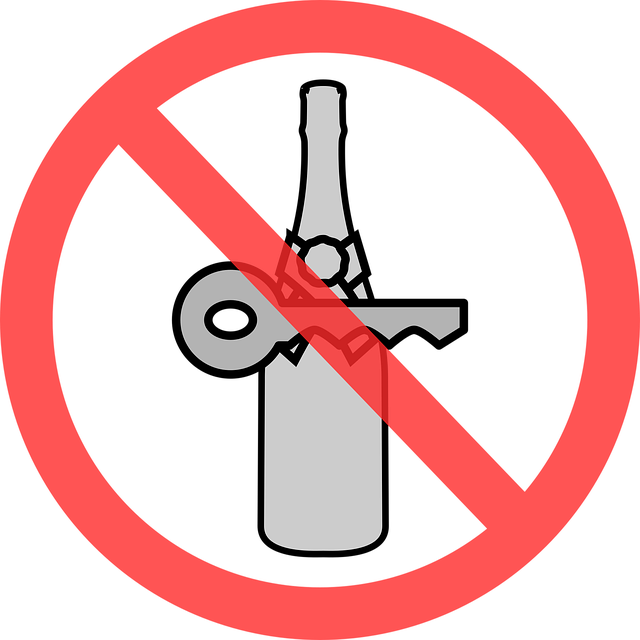Alternative sentencing for DUI offenders focuses on addressing undiagnosed mental health issues like depression and anxiety that impair judgment. Programs prioritize mental health support including assessment, treatment, and recovery services. Options like community service, electronic monitoring, addiction treatment, and intensive supervision reduce recidivism rates through rehabilitation and public safety. This approach benefits both offenders and communities by providing second chances and empowering individuals with sustainable coping strategies for safer driving.
“Mental Health Driving Safely delves into the intersection of dual crises—DUI offenses and underlying mental health challenges. This comprehensive guide explores tailored solutions, focusing on alternative sentencing options beyond incarceration. We examine programs offering second chances, the benefits of community service, therapy’s role in recovery, and strategies to reduce recidivism. By integrating mental health support with responsible driving initiatives, we aim to illuminate effective, human-centric approaches for DUI offenders’ rehabilitation and successful reintegration.”
- Understanding DUI Offenders' Mental Health Challenges
- Exploring Alternative Sentencing Options Beyond Incarceration
- Mental Health Support Programs for Second Chances
- Navigating Community Service and Its Benefits
- Therapy and Counseling: Pathways to Recovery
- Reducing Recidivism: Long-Term Solutions for Success
Understanding DUI Offenders' Mental Health Challenges

Many individuals who find themselves behind the wheel under the influence struggle with undiagnosed or untreated mental health conditions, contributing to their impaired judgment and decision-making. These conditions can range from depression and anxiety to more severe disorders like bipolar disorder or schizophrenia. Recognizing these challenges is a crucial step in addressing the root causes of DUI (driving under the influence) offenses.
Alternative sentencing programs for DUI offenders should be designed with mental health support at their core, offering opportunities for assessment, treatment, and recovery. By implementing such initiatives, we can not only hold offenders accountable but also provide them with the necessary tools to manage their conditions effectively while ensuring safer roads for everyone.
Exploring Alternative Sentencing Options Beyond Incarceration

In many cases, traditional sentencing for DUI (driving under the influence) offenses often includes incarceration, adding to the strain on the criminal justice system. However, there’s a growing emphasis on exploring alternative sentencing options that focus on rehabilitation and public safety. This shift acknowledges that DUI is not just a criminal act but also a symptom of underlying issues like substance abuse or mental health problems.
Alternative sentencing for DUI offenders can take various forms, such as community service, electronic monitoring, participation in addiction treatment programs, and intensive supervision. These approaches offer opportunities for individuals to learn from their mistakes while addressing the root causes of their behavior. By considering these alternatives, the justice system can foster a more effective path to recovery and reduce recidivism rates.
Mental Health Support Programs for Second Chances

Many jurisdictions are recognizing the importance of addressing mental health issues within their criminal justice systems, especially in cases involving DUI (driving under the influence). One innovative approach gaining traction is the implementation of Alternative Sentencing for DUI Offenders that focus on providing mental health support. These programs offer second chances to individuals who may have underlying psychological conditions contributing to their impaired driving.
Instead of solely relying on traditional prison sentences, which can exacerbate mental health issues, these alternative sentencing options direct offenders towards specialized treatment centers or community-based programs. Here, they receive comprehensive mental health assessments and access to tailored therapies, counseling, and support groups. By addressing the root causes of DUI incidents, these initiatives aim to reduce recidivism and empower individuals with sustainable coping strategies for a safer future behind the wheel.
Navigating Community Service and Its Benefits

Navigating community service is an alternative sentencing option for DUI offenders, offering a range of benefits that go beyond simply avoiding jail time. By participating in community-based programs, individuals can contribute to their local areas while gaining valuable insights and skills. This hands-on experience often includes tasks such as assisting at local non-profit organizations, participating in environmental clean-up initiatives, or providing support services to those in need.
These activities not only provide a sense of purpose and accountability but also foster social connections and a stronger community bond. Moreover, community service can be an effective tool for personal growth and rehabilitation, as it encourages individuals to reflect on their actions and take responsibility for their well-being and that of others. This process can lead to improved mental health outcomes and reduced recidivism rates, ultimately benefiting both the offender and the broader community.
Therapy and Counseling: Pathways to Recovery

Therapy and counseling play a pivotal role in helping individuals navigate mental health challenges while ensuring safe driving practices. For those facing charges like DUI (Driving Under the Influence), seeking professional support is not just an option but a crucial step towards recovery and rehabilitation. This process can offer alternative sentencing opportunities, allowing for personalized approaches to address underlying issues.
Through individual or group therapy sessions, offenders can explore their behaviors, emotions, and thoughts without judgment. Counselors provide a safe space to discuss personal struggles, offering valuable insights and strategies for managing stress, anxiety, or depression. By targeting these mental health factors, counseling can significantly reduce the risk of future impaired driving incidents, fostering positive changes and ensuring safer roads for everyone.
Reducing Recidivism: Long-Term Solutions for Success

Reducing recidivism among DUI offenders is a multifaceted challenge that requires long-term, holistic solutions. Beyond traditional punishment, there’s a growing emphasis on alternative sentencing approaches that address the underlying causes of impulsive and dangerous behavior. These innovative strategies not only promote individual rehabilitation but also contribute to safer roads for everyone.
One such approach is diversions like counseling, support groups, and community service programs designed to help offenders understand and manage their triggers. By offering constructive alternatives to incarceration, these initiatives foster personal growth and reduce the risk of future DUI incidents. Additionally, implementing effective aftercare programs that provide ongoing support and resources can significantly lower recidivism rates, ultimately creating a more sustainable and positive impact on both individuals and society at large.
In addressing mental health and driving safely, it’s clear that a multifaceted approach is essential. By understanding the unique challenges faced by DUI offenders, exploring alternative sentencing options like community service, and implementing supportive programs focused on therapy and long-term recovery, we can foster second chances while prioritizing public safety. Implementing these strategies not only reduces recidivism but also creates a more compassionate and effective justice system for all involved. Considering alternative sentencing for DUI offenders is a crucial step towards a safer and healthier society.






